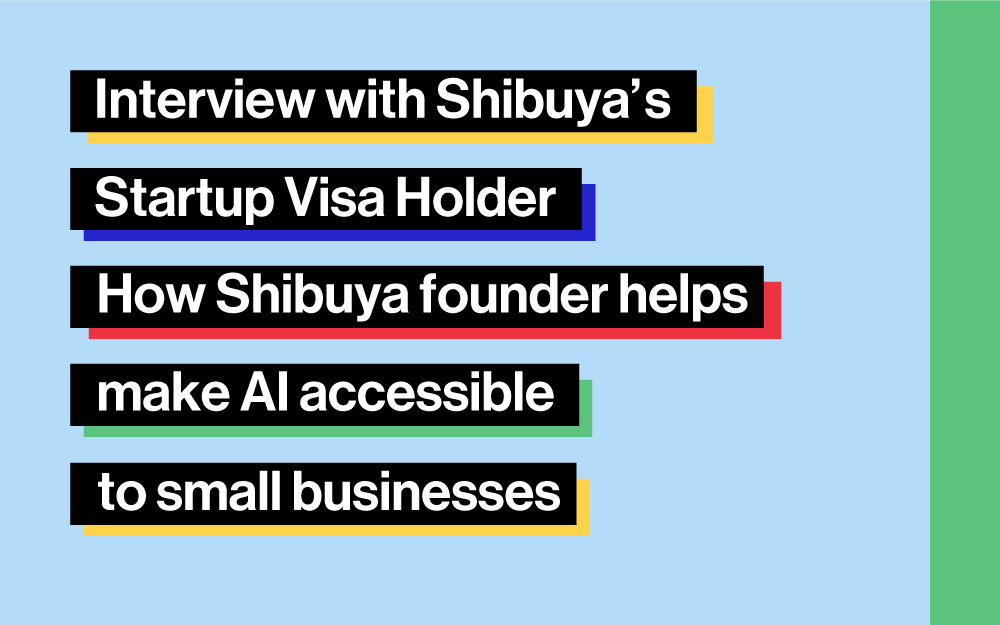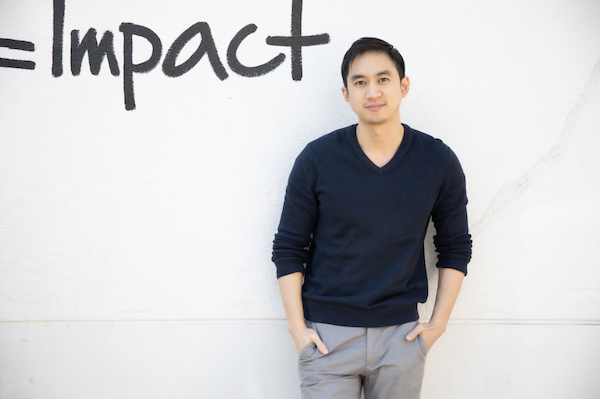


このシリーズでは、当社のコミュニケーションアドバイザーであるサシャ・カヴェリーナが、スタートアップビザを取得した成功した起業家たちへのインタビューを通じて、渋谷のスタートアップ起業家についてご紹介します。彼らのストーリーから、渋谷を選んだ理由や、スタートアップビザの申請をスムーズに進めるためのヒントまで、詳しくお読みいただけます。経験豊富な起業家兼データサイエンティストであるトロウニ・ティエト氏は、AIを軸としたビジネスオートメーションプラットフォームの開発のため、渋谷スタートアップビザを取得しました。彼の起業家精神が日本への道を開いた経緯について、ぜひお読みください!

こんにちは、トロニ。あなたの起業家としての道のりについて教えていただけますか?
私はフランスのトップクラスの工学系大学で工学を学びました。学生時代から、キャリアをビジネスアイデアの実現に捧げることを決めていました。工学の勉強中にギャップイヤーを取った際、フランスの大手企業の技術部門でインターンシップを始めましたが、すぐに与えられた業務が会社にとってほとんど影響を与えないことに気づきました。さらに悪いことに、その仕事は私に役立つスキルをほとんど教えてくれないものでした。経験のない若いインターンとして、それは intimidating な決断でしたが、実践的な知識と経験を求めていたため、上司にその理由を丁寧に説明し、インターンシップを辞めました。
1ヶ月後、私は中国に赴き、その後の人生の大部分を形作る驚くべき経験を得ることになりました。北京で最初のスタートアップを立ち上げる創業者の元で働き、その時から私の目まぐるしいスタートアップの旅が始まりました。
以来、オーストラリア、香港、ドイツ、イタリア、そして最近では日本で、複数の企業の設立や立ち上げを支援してきました。企業の優先順位が変化する中で、マーケティングや物流から知的財産管理、生産、ウェブデザイン、営業の冷やかし電話まで、考えられるほぼすべての役割を経験しました。これにより、ビジネス全般の広範な理解と、企業や製品を運営する上で直面するあらゆる課題への洞察を養うことができました。
日本に移住後、エンジニアリングと製品展開に注力し、東京のコーディングブートキャンプでデータサイエンスの講師も始めました。デジタルトランスフォーメーションが日本の多くの業界に根本的な変革をもたらすのを目の当たりにし、この挑戦的だが有望な機会を掴む決意をしました。
タイミングが良かったのは、私のビジネスパートナー(ブートキャンプでデータサイエンスを教えていた人物)も業界内の新たな機会に興味を持っていたからです。いくつかの調査を経て、私たちは企業様のデジタル変革を支援するプラットフォームの開発で協力することを決めました。
スタートアップについて詳しく教えていただけますか?
私たちは、中小企業経営者がAIを活用して業務の課題を自動化するためのプラットフォームを構築しています。このプラットフォームは、AIソリューションの存在を知らない企業と、クライアント企業のドメイン知識が不足するサービスプロバイダーのミスマッチを解決します。
プラットフォームを通じて、ユーザーは類似企業で利用されているAIソリューションのデータベースにアクセスし、データサンプルを提出することで、実現可能性、導入コスト、運用コストの推定をカスタマイズして取得できます。AIの専門知識は不要で、複雑な技術プロセスや意思決定を簡素化する設計となっています。
日本の多くの企業はデジタルトランスフォーメーションの初期段階にあります – これは私たちにとって大きな機会です。新しいソリューションを導入したいと考えている企業が多く、どのように実現できるか興味を持っている企業も少なくありません。ただし、日本のリスク回避的な文化は、私たちが直面する主な障害の一つであり、その対応に備えています。
なぜ渋谷スタートアップビザに応募したのですか?
最初に興味を持ったのは、渋谷で事業を開始する外国人起業家に対する支援です。渋谷ウェルカムサービスとLe Wagon Tokyoが共催したイベントに複数回参加し、渋谷の外国人への親しみやすさと支援体制に非常に好印象を受けました。日本語を多少話せますが、書類手続きや法的側面を英語で説明してくれる公式の連絡先がある点は本当に助かります。
次に、当初はビジネスマネージャービザを検討していましたが、専用オフィススペースの確保など、一部の要件が現在の段階ではやや煩雑に感じられました。パンデミックの真っ只中で高額なオフィスを借りる代わりに、これらの資金を製品の開発とマーケティングに投資できる点が魅力的でした。
申請プロセスについて詳しく説明していただけますか?
最初の電話で、渋谷ウェルカムサービスの田中美穂さんが、ビザの選択肢やスタートアップビザ申請に必要な書類を丁寧に説明してくれました。田中さんのフィードバックを基に、数週間かけて書類を準備し、修正を加えました。次のステップは、渋谷市の関係者やベンチャーキャピタリストとの30分間の評価面接に合格することでした。質問は鋭く、ビジネスプランの課題点に的を絞ったもので、審査員からの貴重なフィードバックに本当に感謝しています。
結果は驚くほど早く、同日に届きました。ミホから申請が承認された旨のメールが届き、入国管理局への承認書が近日中に発行されることも伝えられました。まさにジェットコースターのような一日でした!
今後の計画はどのようなものでしょうか?
技術的な概念検証(PoC)の作業を開始し、顧客インタビューを継続しています。試行錯誤が繰り返されることは承知しており、必要に応じて方向転換も辞さない覚悟です。
現在は二人で製品開発を進めていますが、プロトタイプ構築を支援するため、パートタイムのウェブ開発者をチームに追加し、私は徐々に営業と顧客対応に焦点を移していく予定です。
渋谷ウェルカムサービスのご支援、情熱、そして柔軟な対応に感謝しています!渋谷を拠点とする起業家の仲間入りができ、東京のスタートアップシーンに貢献できることを大変嬉しく思っています。